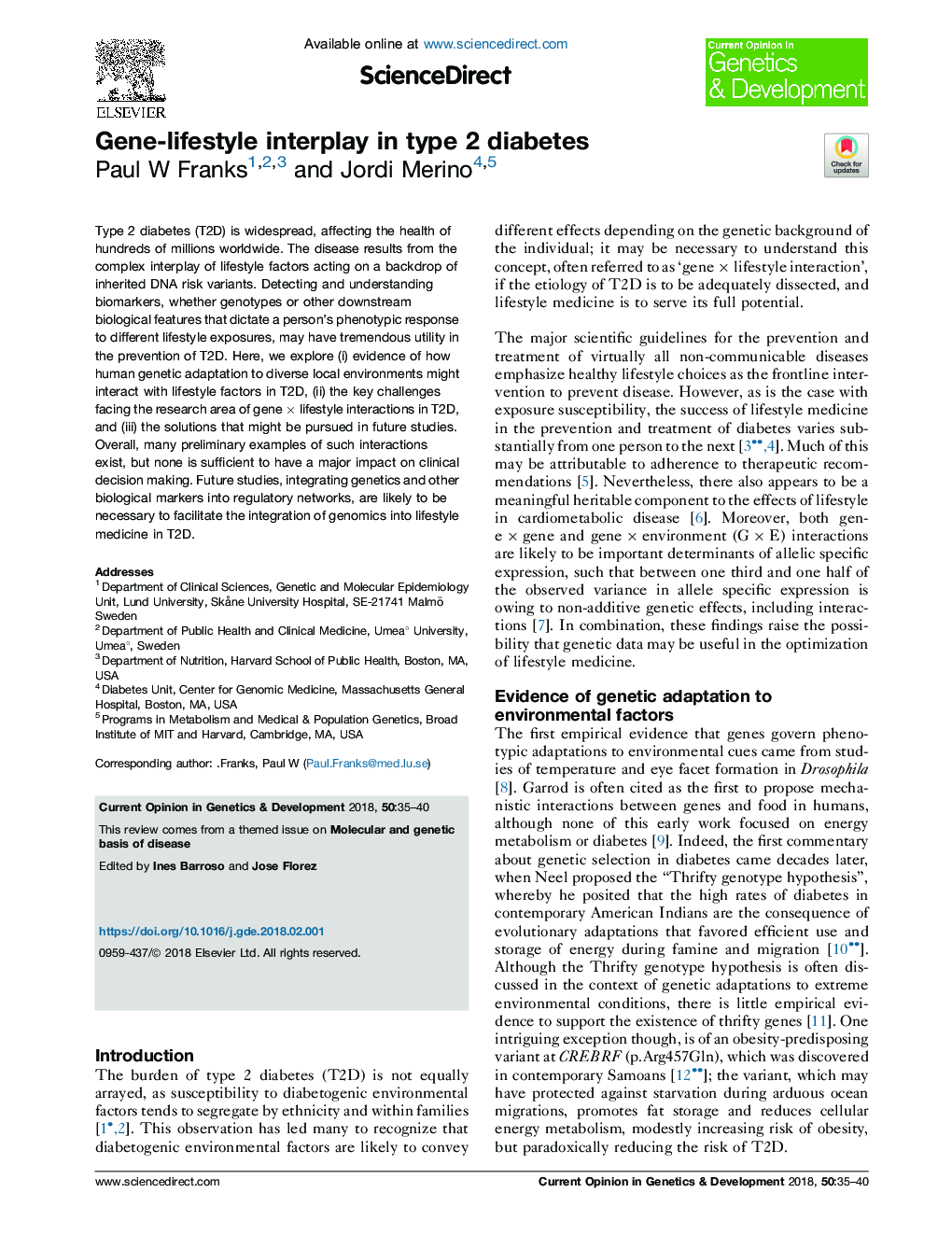| Article ID | Journal | Published Year | Pages | File Type |
|---|---|---|---|---|
| 8625757 | Current Opinion in Genetics & Development | 2018 | 6 Pages |
Abstract
Type 2 diabetes (T2D) is widespread, affecting the health of hundreds of millions worldwide. The disease results from the complex interplay of lifestyle factors acting on a backdrop of inherited DNA risk variants. Detecting and understanding biomarkers, whether genotypes or other downstream biological features that dictate a person's phenotypic response to different lifestyle exposures, may have tremendous utility in the prevention of T2D. Here, we explore (i) evidence of how human genetic adaptation to diverse local environments might interact with lifestyle factors in T2D, (ii) the key challenges facing the research area of gene Ã lifestyle interactions in T2D, and (iii) the solutions that might be pursued in future studies. Overall, many preliminary examples of such interactions exist, but none is sufficient to have a major impact on clinical decision making. Future studies, integrating genetics and other biological markers into regulatory networks, are likely to be necessary to facilitate the integration of genomics into lifestyle medicine in T2D.
Related Topics
Life Sciences
Biochemistry, Genetics and Molecular Biology
Developmental Biology
Authors
Paul W .Franks, Jordi Merino,
